The people of the Democratic Republic of Congo (DRC) have faced an onslaught of deadly diseases in recent years, including measles, polio, malaria and Ebola.
Now the central African nation, with a crumbling and overwhelmed health system, is facing another deadly enemy in the coronavirus pandemic.
“It is a very challenging environment where all of these multiple diseases are occurring at the same time,” Dr Richard Mihigo, regional immunization and vaccines development coordinator for the World Health Organization (WHO), told CNN.
“We should not underestimate the magnitude of all these different outbreaks occurring at the same time in a country where the health system itself is very weak, and in some parts broken,” he said.
In a recent report, UNICEF warned the country’s healthcare system was “on life support” due to a lack of enough medical supplies, equipment and funds, and with nearly half of the nation’s health facilities lacking basics such as clean water and sanitation. Many children are “at the mercy of killer diseases,” UNICEF said.
“Our greatest fear remains the damage this coronavirus could do in a country like DRC,” said WHO Director-General, Tedros Adhanom. “Even as the flames of one outbreak begin to die down, we are fighting another fire front.”
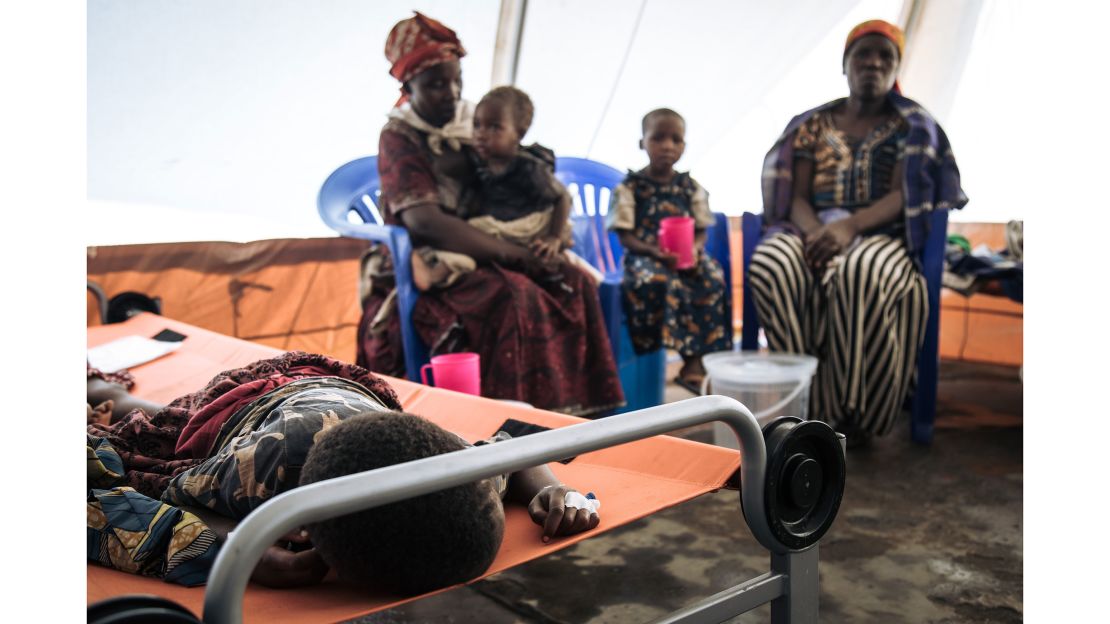
“As for the COVID-19 pandemic, we are worried, of course, but we hope that, if people stick to the government guidelines, and we are able to communicate those guidelines to the community, the outbreak will not spread,” said Dr Abdourahmane Diallo, who heads the WHO Ebola vaccination program in DRC.
Nearly 350 cases of coronavirus and at least 25 deaths have so far been officially reported in the country, as of April 22, according to Johns Hopkins University — still relatively low numbers compared to other parts of the world.
That leaves a “window of opportunity” for medical teams to prepare and prevent higher numbers, Mihigo said. Currently, the majority of cases are focused in the capital Kinshasa, where authorities have implemented preventive measures, but social distancing in the densely populated city has proven difficult, he said.
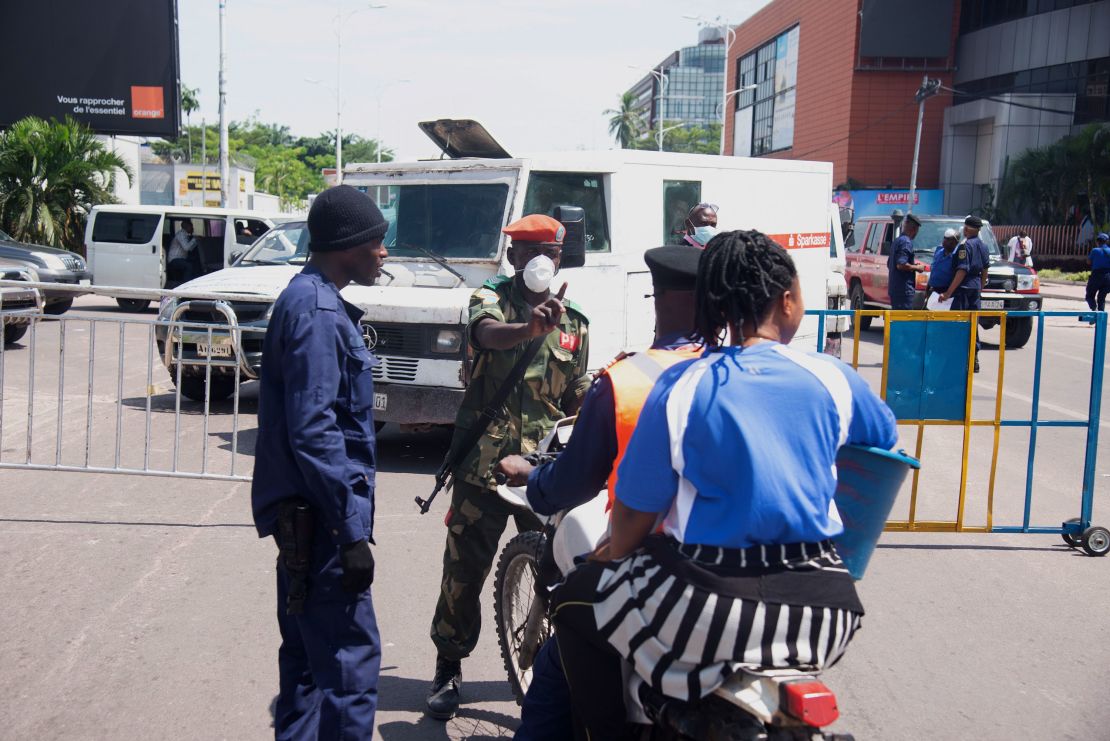
‘Competition for resources’
Fighting several outbreaks at the same time also creates a “competition for resources,” where increased attention to fight one disease leaves gaps in the efforts to fight another, Mihigo said.
For example, when international attention was focused on the fight against Ebola in 2018, the measles campaign experienced a big setback in funding for an extended period, which resulted in an “explosion of cases,” Mihigo said. WHO described the DRC outbreak as “the world’s worst measles epidemic.”
Since 2019, over 330,000 suspected measles cases have been reported and over 6,200 people have died, at least 5,300 of them children, according to the UN.
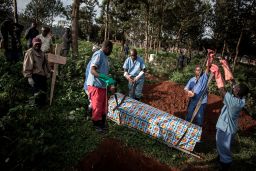
Malaria, another preventable disease, infected approximately 16.5 million people in the DRC in 2019, causing nearly 17,000 deaths, according to the UN.
Ebola has killed more than 2,200 people in the country and infected 3,400 since the beginning of the outbreak in August, 2018, mostly focused in North Kivu and Ituri provinces. The country was just days away from declaring an end to that outbreak but several new cases have since reemerged.
Medical teams are also trying to halt the spread of cholera in the southern parts of the country through vaccination and strengthening water sanitation measures, Mihigo said. Nearly 31,000 cases of cholera were reported in 2019 and 540 deaths, according to the UN.
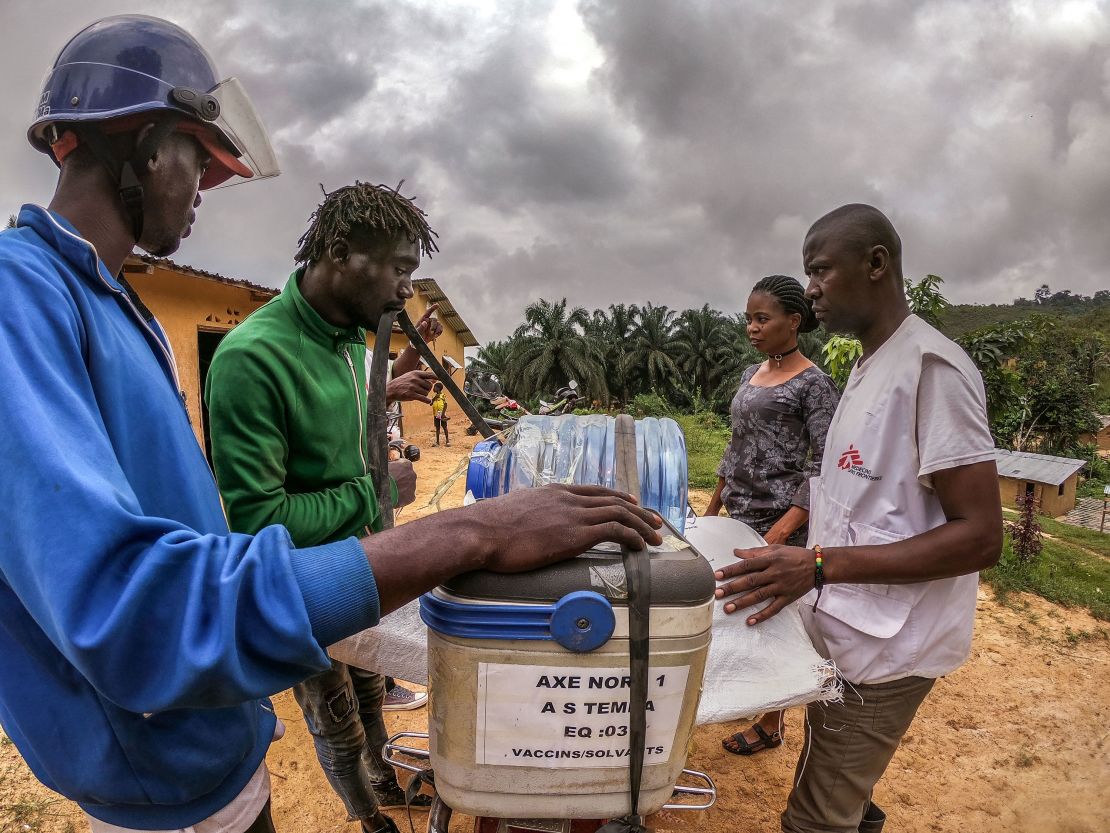
In the meantime, preventive efforts to fight polio and yellow fever had to be put on hold, as the country prepares for the fight against coronavirus. “That explains why we are in a situation almost like a protracted sort of situation where multiple outbreaks break at the same time,” Mihigo said.
“The supply system is also an issue, because you need to bring in all the vaccines - being for measles, being for yellow fever or cholera - and it’s not easy to manage all the logistics for all these events happening at the same time,” he said. “This is probably the reality check that we are having on the ground.”
“Unless health facilities have the means to deliver immunization, nutrition and other essential services, including in remote areas of the country, we risk seeing the lives and futures of many Congolese children scarred or destroyed by preventable diseases,” said Edouard Beigbeder, UNICEF representative in DRC.
Lessons learned are helping fight coronavirus
However, despite the setbacks, lessons learned from the fight with those multiple outbreaks and the systems that were implemented are already helping efforts to stop the spread of coronavirus, Mihigo said.
“During Ebola we lost many health workers to that disease, so the country has learned a great deal of how to put in place strict infection-prevention control measures,” Mihigo said. “I think this will be something quite beneficial in the fight of corona.”
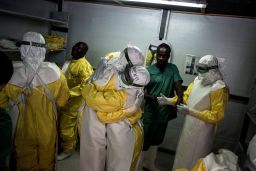
Mihigo said the current environment is also different as people understand they are facing a global pandemic and therefore communities are more likely to adopt the recommended preventive measures.
“Now people know that this is not something that is only in their country, they are seeing the news, they are seeing how literally all countries on the planet are being affected,” Mihigo said. “So people understand that this is a real threat.”
The Geographic Information System (GIS) that was implemented for polio surveillance could also be used as a tool in the fight with coronavirus, he said.
Some of the coronavirus prevention measures that the government has implemented, such as limited circulation between provinces, temporary border closures and limiting international flights, are also helping, Mihigo said.
“The-Covid-19 pandemic requires all of us to work together. It really requires a multi-sectoral, all-of-society approach and we can only succeed if we put all of our work together,” said Dr Matshidiso Moeti, WHO Regional Director for Africa, on April 9.
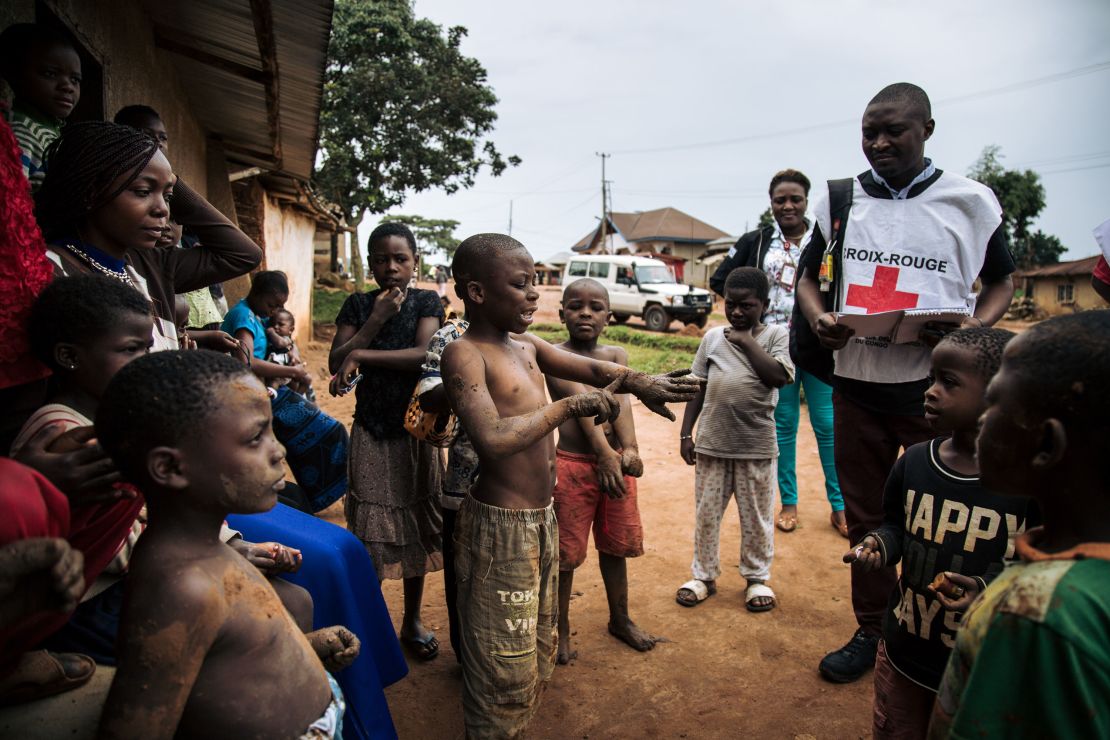
Vulnerable “hardest hit”
Nearly 3.3 million children in the DRC have “unmet vital health needs” and 9.1 million children, or nearly one in five under the age of 18, require humanitarian assistance, according to the latest UNICEF estimates.
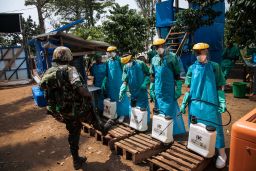
Furthermore, ongoing militia violence in the northeast, including attacks against health centers, have claimed the lives of residents and health workers. Nearly a million people were forced to flee their homes in 2019 alone, the UN agency said, making access to medical care and prevention even more difficult
In addition, authorities warn the virus could also “unleash economic and social devastation” and lead to a food security crisis caused by disrupted agricultural production and food imports.
The World Bank projects sub-Saharan Africa will suffer its first recession in 25 years, as economic growth is forecast to fall sharply in 2020 because of coronavirus.
“All countries must rapidly accelerate and scale up a comprehensive response to the pandemic, including an appropriate combination of proven public health and physical distancing measures,” said Dr Ahmed Al-Mandhari, WHO Regional Director for the Eastern Mediterranean.
“Africa still has an opportunity to reduce and slow down disease transmission,” he said.




